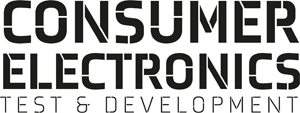UL said it was a first for the company, which certified a digital model of a product being developed by the tech giant Siemens. The certification could have far-reaching implications for product innovation and speed to market, opening the door to the use of verified and validated digital models alongside physical tests.
UL Solutions modeling and simulation services use a proprietary verification and validation process to establish the credibility of the model for compliance. Modeling and simulation are especially efficient for components and end products that are challenging to test due to size, complexity or number of design variances. Plus, using previously validated models in new designs adds confidence early in the product design process.
In the case of Siemens, UL used a certified digital twin of Siemens’ new SINAMICS G220 variable frequency drives to carry out a key temperature rise test required for certification to the second edition of UL/IEC 61800-5-1, the Standard for Adjustable Speed Electrical Power Drive Systems – Part 5-1: Safety Requirements – Electrical, Thermal and Energy.
The certification process integrated digital modeling and simulation with traditional physical tests, UL said. It is hoped that the new approach will lead to more precise insights and the need for fewer product prototypes.
“Siemens’ digital twin technology is rewriting the rules of innovation,” said Cedrik Neike, a member of the managing board of Siemens AG and CEO of Siemens Digital Industries. “This collaborative effort with UL Solutions is a testament to our dedication to a future in which innovation knows no bounds. It invites industries and innovators alike to explore the limitless possibilities that comprehensive digital twins offer for shaping the future of product development.”
“Modeling and simulation-based services particularly provide added value for customers’ modular designs and product platforms consisting of many design variances,” said Weifang Zhou, executive vice president and president of testing, inspection and certification at UL Solutions. “This added value can also be realized through the reduction of prototypes and effort to physically test them as well as reduced risk of a delayed market launch due to noncompliance late in the development process.”

